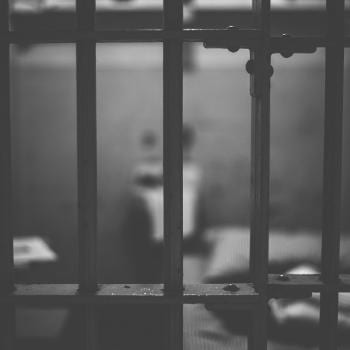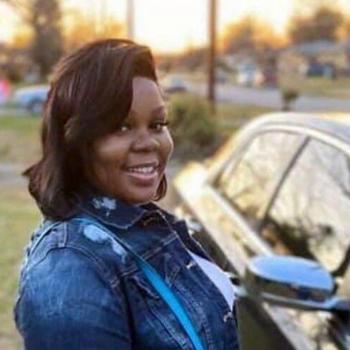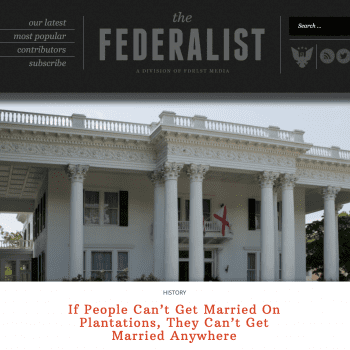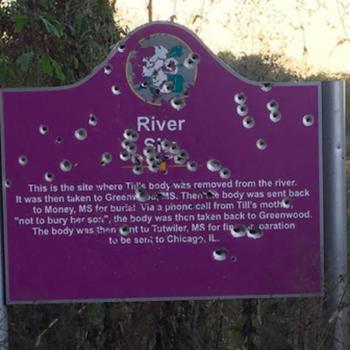I grew up in an evangelical bubble. When I left this bubble to attend college, I found my beliefs challenged. When my evangelical beliefs began slipping through my fingers, I grasped for something to hold onto. I found that in Catholicism. When I first converted I was extremely conservative in addition to being very fervent and devout. I read the early church fathers and the catechism, Catholic apologetic books and the lives of the saints. Of course, this didn’t last. All this is to preface the fact that a young woman I knew during the period I spent as a Catholic recently sent me a message. She had noticed something I posted affirming gay rights on facebook and wanted to know when I went from being socially conservative to socially liberal. As introspective as I tend to be, I had never asked myself that particular question. And so I thought about it. And you know what I realized? It was my time as a Catholic to did that to me.
As an evangelical Christian, I devoted all of my energy toward winning converts. I believed that our present life pales in comparison to the eternity we will spend in heaven. I also believed that only those who prayed “the sinners prayer” would be go to heaven while everyone else would go to hell. It’s not that I cared nothing for improving people’s lives in the present, but rather that doing so seemed insignificant compared saving souls from an eternity spent in hell. In contrast to this, the Catholic Church has a strong tradition of social justice. Just as I found the ritual of the Catholic Church appealing after the bare-bones evangelicalism of my youth and teen years, even so I soon found the Catholic Church’s focus on social justice enticing after the the-soul-is-all-that-matters evangelicalism of that same period. It was like water poured on parched ground.
In addition, as a Catholic I began to widen my circle. For one thing, I began to see Catholics in Latin America, Africa, and around the globe as part of my family. There was something amazing about feeling that sort of oneness and belonging. Sure, as an evangelical I had seen myself as part of “the body of Christ,” but the evangelicalism I had belonged to was fraught with doctrinal splits. There was something amazing about knowing that I could go to a Catholic church in the next town, the next state, or even across the globe, and still hear the same mass and read the same catechism. I felt part of one great united body of humanity in a way I hadn’t as an evangelical.
I also became fascinated by the ecumenical tradition of Catholicism, which has developed since Vatican II. Vatican II stated that “many elements of sanctification and truth are found outside [the church’s] visible confines. Since these are gifts belonging to the Church of Christ, they are forces impelling towards Catholic unity.” Every time the words “This is the cup of my blood, the blood of the new and everlasting covenant. It will be shed for you and for all, so that sins may be forgiven” were recited in the mass, I felt a deep connection with all of humanity and a rejection of the exclusivity of the evangelicalism of my youth. One of my favorite parts of the catechism was number 847, which states that “Those who, through no fault of their own, do not know the Gospel of Christ or his Church, but who nevertheless seek God with a sincere heart, and, moved by grace, try in their actions to do his will as they know it through the dictates of their conscience – those too may achieve eternal salvation.” Catholic ecumenism spoke to me and I stopped sorting the world into “saved” and “damned.”
Catholicism allowed me to turn away from myself and away from the idea that I had a monopoly on truth, meaning, and beauty, and to fully embrace others in a way I never truly had as an evangelical. Catholicism gave me a passion for bettering people’s lives in the here and now and led me to set aside my focus on life after death. Catholicism gave me a passion for social justice, for the environment, and for progressive political goals like universal healthcare and an improved social safety net. Catholicism introduced me to the beauty of a society of interdependent individuals.
Everyone’s journey was different, and for some Catholicism only closes off and boxes in. In my case, though, Catholicism served as the catalyst for me to open up, positively transforming the way I viewed the world.
But there was one little problem. Once I’d gotten started I couldn’t stop. I wrote this in a post almost exactly a year ago:
One thing that had attracted me to the Catholic Church in the first place was its teachings on social justice. I loved that the Catholic Church cared deeply about improving people’s lives in the here and now, about seeing that people have food, water, and health care. I loved having a faith that cared more about helping people than about converting them. But I began to see that in the Catholic Church social justice takes a backseat to controlling sex. How could the Catholic Church discourage condom use in Africa and watch while millions died of AIDS? How could the Catholic Bishops in the U.S. care more about trying to end women’s birth control health insurance coverage than about organizing to support universal health care for all? Did controlling people’s sexual lives matter more than feeding the poor, bringing medicine to the sick, and housing the destitute?
I left the Catholic Church for theological reasons, but if I am honest with myself that was not all. I had also already begun to become disillusioned. The Catholic Church’s focus on social justice had inspired me, but it began to feel that the Church was holding me back from fully realizing the very inspiration it had given me. The seed the Catholic Church planted in me had grown such that the I no longer fit in the Church. It was not just theological doubts that thrust me out of Catholicism. It was also love.
The young woman who knew me as a Catholic was prompted by a status update in support of marriage equality when she asked how I had become a liberal. The thing is, once Catholic teachings had inspired me to widen my circle and embrace humanity, once they loosened the “saved” and “damned” boxes I had sorted the world into, I couldn’t well limit my circle and shut my arms to my gay friends and colleagues. Once I had opened my arms and my heart, I could not close them. It was Catholicism, with its emphasis on social justice and ecumenism, that served as the catalyst for my transition from social conservative to a social progressive. And when the full results of that transition manifested themselves in me, I no longer felt that I had a home in the Catholic Church.
I have often likened my journey to that of a caterpillar-turned-butterfly. That’s why my blog’s header features a picture of a butterfly. I spent the beginning of my life moving along the ground, looking down unaware of the beauty that was above. I then entered a period of transition, a chrysalis, before being born anew as a butterfly, free as the wind. In some sense, Catholicism was that chrysalis. Within its protective bounds I changed, I transformed, I remade myself, and then I found that it had stopped feeling protective and comforting and had started feeling constricting. Having transformed within it from a caterpillar to a butterfly, I broke out and flew free.
Interestingly enough, I’ve read a number of blog posts by progressive Christians discussing something similar. Rachel Held Evans argues that she is a feminist because of Jesus, and John Shore states that Jesus’ words in the gospels left him no room but to support gay rights. In other words, I am not the only one to be so carried away by Christianity’s messages of social justice, equality, and love as to become religiously heterodox. And indeed, religious conservatives have become so alarmed at this trend as to fight back by attacking the Christian commandment to love itself, arguing that love “waters everything down.” I find this fascinating.














